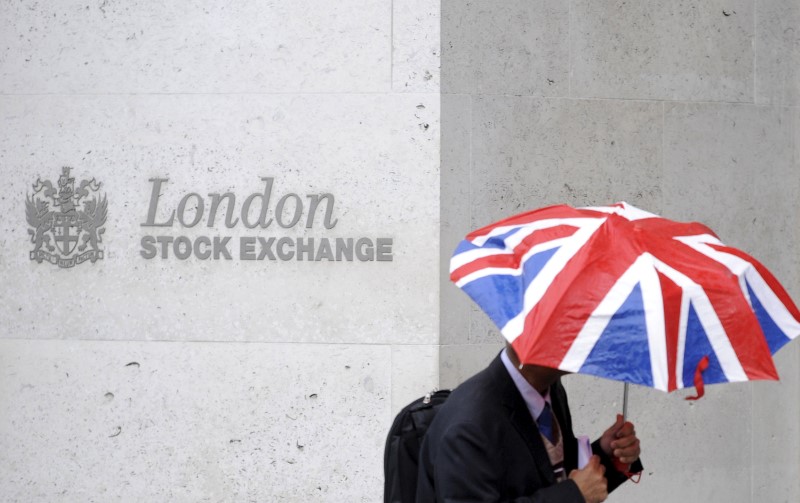By Marc Jones
LONDON (Reuters) - Gains for Europe and Asia pushed world shares back towards record highs on Friday, while the dollar crept up ahead of the monthly excitement of U.S. payrolls data.
Euro zone stocks (STOXXE) had been at risk of their second red week in a row but a 0.5 percent early rise looked to have dug them out of trouble, following gains in Asia and on Wall Street overnight. (N)
Near 6 percent jumps in French media firm Vivendi (PA:VIV) and Swedish car and truck maker Volvo (ST:VOLVb) lifted spirits, as did a rise in euro zone manufacturing data that showed the fastest rise in export orders since February 2011.
On-form mining companies (SXPP) remained hot as copper and iron ore [MET/L] headed for their eighth straight week of gains.
There was also some relief the euro seemed to have stalled and this year's 13 percent rise wasn't hurting firms just yet.
The latest factory PMI figures showed strong traction across all major euro zone economies and at 57.4 matched June's strongest reading since April 2011.
It left the euro buying $1.1894
"The euro zone's impressive manufacturing upturn regained momentum in August, with a summer surge in factory activity suggesting rising goods production will support another strong GDP reading in the third quarter," said Chris Williamson, chief economist at the data's compiler IHS Markit.
It left attention firmly on the dollar and U.S. nonfarm payrolls data due at 1230 GMT.
Economists polled by Reuters expect an increase of 180,000 jobs in August after a 209,000 surge in July and forecast that average hourly earnings will have gained 0.2 percent after rising 0.3 percent in July.
"The wages component of the jobs report will be key," said Junichi Ishikawa, senior FX strategist at IG Securities in Tokyo.
"If earnings are to have picked up along with employment, we will see a straightforward reaction with U.S. stocks and yields rising and the dollar being bought."
The dollar index against a basket of six major currencies was steady at 92.716. Although on an individual basis the greenback was up against the euro and the yen
On Thursday, U.S. consumer spending data for July rose slightly less than expected and annual inflation advanced at its slowest pace in more than 1-1/2 years, diminishing expectations of a U.S. interest rate increase in December.
That also fed into bond markets. Yields on U.S. Treasuries, which move in the opposite direction to price, were down for a fourth week in five and German yields
SURGING EMERGING
Emerging market stocks were still cheering their eighth straight month of gains as China's yuan hit a fresh 14-month high and metals markets continued to rally. [EMRG/FRX]
Industrial bellwether copper
Gold was near a 9-1/2-month high, supported as the dollar steadied and by lingering concerns over tensions in the Korean peninsula. [GOL/]
Oil futures fell, partly reversing sharp gains from the previous session, amid turmoil in the oil industry with nearly a quarter of U.S. refining offline. [O/R]
Hurricane Harvey, which brought record flooding to Texas, has shut at least 4.4 million barrels per day of refining capacity, according to company reports and Reuters estimates.
"It looks like everyone thinks that the hurricane will affect refining more than production," said Tony Nunan, oil risk manager at Mitsubishi Corp.
"Production will come back faster than refining so it is just going to exacerbate the situation where there's too much oil."
U.S. crude (CLc1) was down 1 percent at $46.76 per barrel. The futures had surged 2.8 percent on Thursday following a steep drop the previous day, during a week in which the hurricane roiled the oil market.

Brent crude (LCOc1) shed 1 percent too, to $52.35 a barrel.